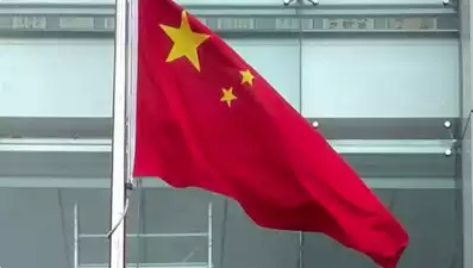
Blinken Visits Beijing The Hidden Economics of Remarkable Women Hear how women around the world are challenging the status quo. Season 3 of The Hidden Economics of Remarkable Women, a podcast from Foreign Policy, is out now. Listen Here. What We’re FollowingEconomy trumps COVID fears. Chinese authorities continue to emphasize that the COVID-19 wave that began late last year peaked in late December, with cases now significantly down. That seems like a big bet given the unreliability of official statistics—and the implicit framing that this first wave will be the worst one. Attempts to approximate the real death toll have led foreign outlets to look at indicators such as mourning flowers. Later waves will likely be subject to even more concealment.At this point, both the government and the public are more concerned with economic revival. Good news has followed the recent Spring Festival holiday, but reopenings are still fragile and supply chains have not fully recovered. Consumer spending and travel numbers showed a decent recovery, up from 2022 but still below the pre-pandemic heights of 2019.Texas land ban. Texas is attempting to ban non-U.S. citizens from four countries—China, Iran, Russia, and North Korea—from purchasing land in the state, with Beijing as the law’s main target. U.S. right-wing media has taken up the cause, exaggerating the scale of the supposed problem. Chinese firms own just 192,000 acres of land in the United States, out of 35 million acres owned by foreigners. (For scale, 192,000 acres is 0.11 percent of all the land in Texas.)The problem is that a suspicious amount of this Chinese-owned land is close to sensitive military sites. This is something that could be solved with careful regulation. But the Texas bills would simply ban Chinese green card and work visa holders from buying a house, and Chinese American groups have singled it out as a dangerous and racist law. FP’s Most Read This Week• Europe Doesn’t Need the United States Anymore by Rajan Menon and Daniel R. DePetris• Why India Banned the BBC’s Modi Documentary by Salil Tripathi• Turkey’s Problem Isn’t Sweden. It’s the United States. by Halil Karaveli Tech and BusinessBudget woes. The data from a very bad year for the Chinese economy is still coming out in bits and pieces. The latest news: The budget deficit rose to a record $1.3 trillion last year, which is larger than what was predicted even a few months ago. The crumbling of China’s property market is contributing to the funding gaps; it has disrupted local government funding, which is largely dependent on revenue from land sales to real estate developments.That dependence has left holes in local government budgets, as did the spending demands of China’s zero-COVID policy, and it has worsened land grabs as authorities look to replace missing revenue. Civil servants have suffered pay delays as a result, especially in smaller towns. Even Chinese Communist Party officials have seen benefits slashed. Some Chinese cities have turned off public services like heating for part of the day as a result.U.S. enforcement loopholes. U.S. government agencies are currently exhibiting enthusiasm for restricting the technology supply to China and blocking Chinese investments in the United States. But within the United States—a country with strong rule of law—it’s more difficult to impose these restrictions than it is in China. For example, Chinese surveillance firm SenseTime just successfully argued its way around 2021 restrictions, leading to a 35 percent jump in its stock price.The constantly proposed (and mistaken) attempts to ban TikTok in the United States not only failed in court in 2020 but also would likely be blocked by the Berman amendments, which are Cold War-era laws allowing the free flow of ideas from the Soviet bloc. New laws are closing some of these loopholes, but the process can take years and runs into genuine concerns about freedom of speech and commerce.That’s it for this week.For more from Foreign Policy, subscribe here or sign up for our other newsletters. You can find older editions of China Brief here. If you have tips, comments, questions, or corrections, you can reply to this email.Photo: Andrei Pungovschi/AFP via Getty Images Get the daily magazine for people interested in the world. Your first 3 months are just $30, including unlimited reporting and analysis on ForeignPolicy.com and in the FP app, quarterly editions of Foreign Policy magazine, FP Live, and more. Subscribe now. Sign up to receive other Foreign Policy newsletters.Click here to learn more about each newsletter, or select a title below to sign up in one click:Morning BriefAfrica BriefLatin America BriefSouth Asia BriefSituation Report FOLLOW FP ON This email was sent to asheesh.shah@gmail.com because you are subscribed to FP’s China Brief newsletter. Want a friend to receive this newsletter? Forward it now. Want to receive other FP newsletters? Manage your FP newsletter preferences.UNSUBSCRIBE | PRIVACY POLICY | CONTACT US | PARTNER WITH FPForeign Policy magazine is a division of Graham Holdings Company. All contents © 2023 The Slate Group, LLC. All rights reserved. Foreign Policy, 1750 Pennsylvania Ave NW, Suite 200, Washington, DC 20006. |


